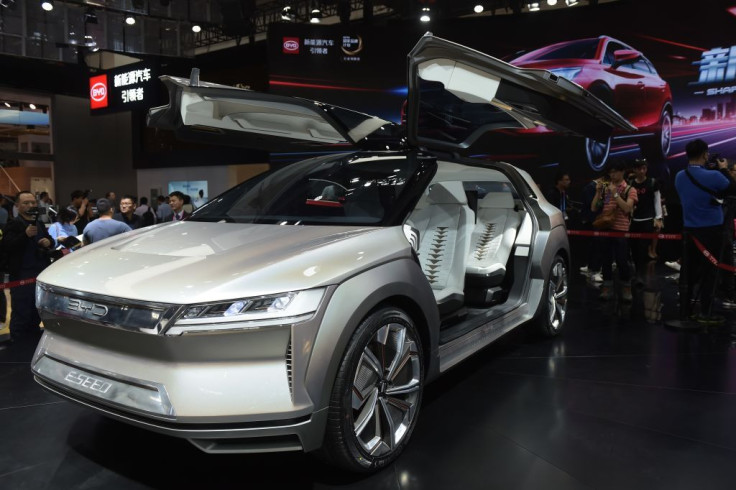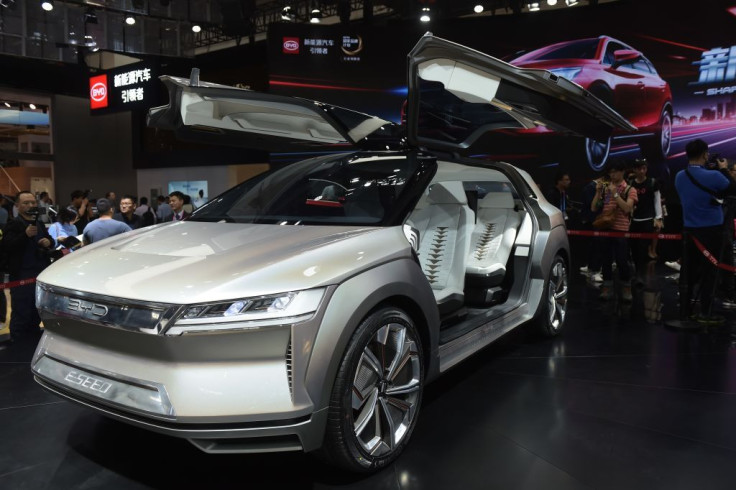Tesla Rival BYD Posts 633% Jump In Q1 Profit As China Market Strengthens

BYD Co Ltd, a top Chinese maker of cars, trucks, electric vehicles (EVs) and rechargeable batteries, reported a massive 633 percent jump in its first quarter net profit to $111.4 million from just $15.2 million year-on-year.
The competitor to Tesla Inc. said strong demand for its new energy vehicles triggered its huge jump in profit and other operating metrics compared to a year ago when earnings fell sharply due to cuts in subsidies for EVs by China’s central government.
Berkshire Hathaway Inc., the investment firm of American billionaire Warren Buffet, is the largest shareholder in BYD with a 24.59 percent stake. Buffett first invested in BYD in September 2008, when MidAmerican Energy Holdings, a subsidiary of Berkshire Hathaway, forked over $230 million for a 10 percent share of BYD. BYD also has a joint venture with Daimler AG to produce luxury EVs under the Denza brand.
Last month, BYD said it expected first quarter profits to rise by nearly 800 percent. It also projects net profit by the end of the first half of this year to rise to $215 million as against $71.2 million in the same period last year.
“New energy vehicles are expected to continue to sell well in the second quarter, and new energy vehicle sales and revenues continue to maintain strong growth,” said the company, adding that new passenger and commercial vehicle models will help boost revenue.
China’s market for electric cars this year is booming. Profits, however, have been hammered by fierce competition between established firms and startups.
BYD sold 117,578 vehicles in the first three months this year, up 5.2 percent year-on-year. BYD said it plans to sell 650,000 vehicles in 2019.
BYD EVs are marketed as the BYDe series. It also sells petrol engine/plug-in hybrids such as the BYD Qin compact sedan, the BYD Song compact SUV and the BYD Tang mid-size SUV.
Official figures released recently show EV sales in China in 2018 soared by 80 percent to 1.1 million passenger vehicles, 60,000 commercial light vehicles and 120,000 medium-heavy commercial vehicles.

This sales spike brought China’s EV market share to 4.2 percent of a national fleet numbering around 240 million. It confirms China’s position as the world’s largest EV market.
In contrast, the next largest EV markets are Europe, where 410,000 EVs were sold in 2018, and the U.S., where 360,000 EVs were sold. EV sales in China are expected to reach 1.8 million units in 2019.
© Copyright IBTimes 2025. All rights reserved.



















